
Perimenopause is the unsung hero of every woman’s middle age. You may have heard about it and seen its elusive symptoms, but do you really know what it is? Allow me to enlighten you on this fascinating rite of passage.
Perimenopause occurs before menopause. It’s a preview of what’s to come as a woman’s body ages from fertile to wise. This transformation usually begins in a woman’s 40s, but precocious bodies may start earlier.
Perimenopause can last from a few years to a decade before menopause, the grand finale, begins.
As if middle age wasn’t exciting enough, perimenopause brings a variety of physical and emotional changes. Hormone levels swing back and forth like a crazy pendulum, causing a wide range of symptoms like hot flashes, night sweats, and the ever-elusive mood swings. Periods may become irregular, indicating that time is passing through our bodies like sand through an hourglass.
But don’t be afraid, we’ve got this! Perimenopause is merely another chapter in the epic saga of womanhood. Embracing it shows our resilience and adaptability. After all, perimenopause is just another stepping stone on the path to becoming the wise, all-knowing, fabulous, ageless women we were destined to be.
So, I will be sharing all I know about perimenopause, from symptoms to diet and weight loss.
Key Takeaways
- Perimenopause is the transition before menopause when estrogen and progesterone rise and fall unpredictably, usually starting in your 40s.
- These hormonal swings cause irregular periods, sleep changes, mood shifts, bloating, brain fog, and sudden food sensitivities.
- Bloating happens because estrogen spikes slow digestion, progesterone drops increase water retention, cortisol rises, and the gut becomes more sensitive.
- Weight changes occur as estrogen declines, metabolism slows, muscle mass decreases, and blood sugar becomes less stable.
- You can feel better by balancing blood sugar, eating protein with every meal, strength training, walking daily, increasing magnesium, supporting your gut, and reducing alcohol.
- Most symptoms improve as hormones settle, and there are simple lifestyle steps that make a big difference.
What is Perimenopause?

Perimenopause is the transition phase leading up to menopause, when your ovaries begin to produce less estrogen and progesterone. It usually begins in your 40s, but some women notice changes as early as their late 30s.
During perimenopause:
- Hormones rise and fall unpredictably
- Ovulation becomes irregular
- Periods become lighter, heavier, closer together, or further apart
- Symptoms appear long before your period stops
Perimenopause ends when you’ve gone 12 months without a period, that’s when menopause officially begins.
During perimenopause, your body makes less estrogen and your hormone levels change, which can make you tired, keep you up at night, make you sweat at night, change your mood, and make you less sexually interested.
Not all women will experience these symptoms; in fact, approximately 15% will have no symptoms at all.
What are the first signs of Perimenopause?
Symptoms vary widely, but the earliest signs tend to be:
- Irregular periods
- Sleep issues
- Mood changes
- Breast tenderness
- Bloating
- Hot flashes or night sweats
- Sudden fatigue
- Anxiety
- Brain fog
- Heavier PMS
- Increased sensitivity to stress
You do not need blood tests to confirm perimenopause, your symptoms are often the clearest sign.
What are the symptoms of Perimenopause?
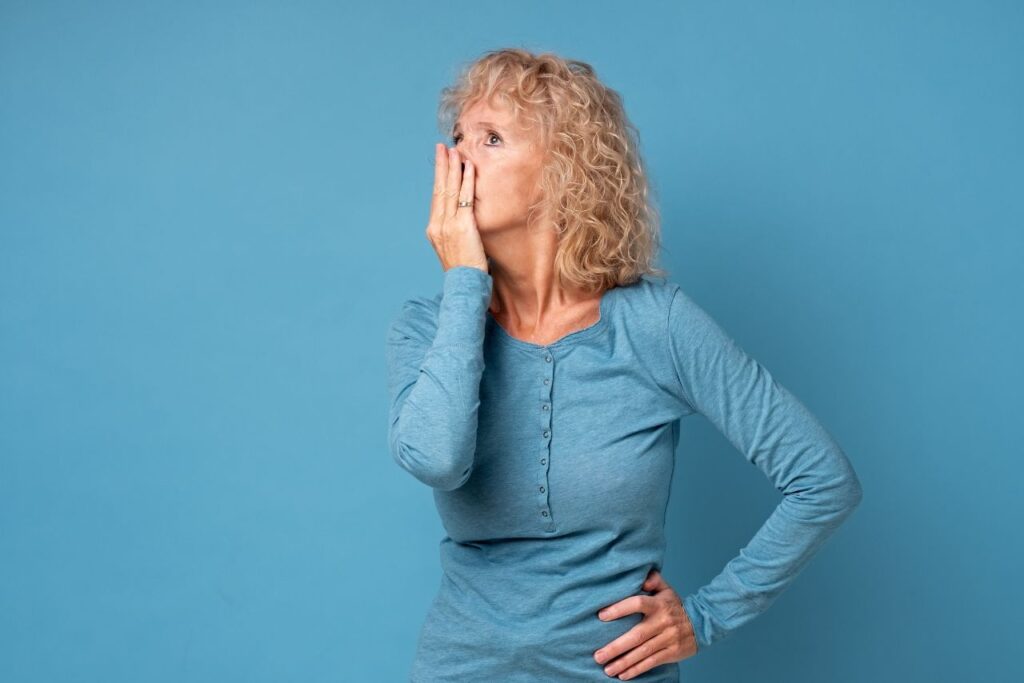
The symptoms of perimenopause vary among individuals, but here are some of the most common:
- Irregular periods
- Hot flashes or night sweats
- Insomnia
- Mood changes
- Fatigue
- Brain fog (poor concentration, forgetfulness)
- Irritability
- Depression
- Vaginal dryness
- Loss of sex drive
- Headaches
- Breast tenderness
- Weight gain or bloating
- Hair and skin changes (hair loss, itchiness, hormonal acne)
- Urinary urgency, leaking, or incontinence
If you’re thinking that this sounds like a hot bag of awful, you’re not wrong!
Luckily, we live in a day and age where women are more likely to talk about these issues and support one another through them.
What’s the difference between Perimenopause and Menopause?
Menopause is officially diagnosed when a woman has gone 12 months or more without a period.
In menopause, the ovaries stop releasing eggs, signalling the end of reproduction.
But menopause does not happen all at once. The transition actually starts 8-10 years earlier due to changing hormone levels in the body. This transition is called perimenopause.
During perimenopause, you may notice changes in your menstrual cycle– for example, irregular cycles or heavy periods.
It’s important to remember, however, that you can still get pregnant during perimenopause.
When does Perimenopause start?

Perimenopause most often begins between the ages of 40 and 44.
However, perimenopause can occur earlier, particularly if you have a history of smoking, cancer treatments, or hysterectomy/oophorectomy.
Some women notice symptoms in their mid-30’s, when fertility naturally starts to decline due to changing hormone levels.
Often, the first noticeable symptom of perimenopause will be irregular periods.
However, irregular periods can be caused by other medical conditions.
If your irregular periods are accompanied by heavy bleeding, blood clots, or spotting after sex, it’s important to talk to your doctor.
What causes Perimenopause?
During the peak reproductive years, levels of reproductive hormones like estrogen and progesterone tend to rise and fall in predictable cycles.
However, as we age, the ovaries naturally begin to produce less estrogen.
Estrogen is an important hormone that regulates a woman’s reproductive system, including the cycle of menstruation.
The hormone estrogen is also involved in controlling the body’s temperature, mood, and memory.
During perimenopause, levels of estrogen can drop and spike unexpectedly. This causes other hormones to fluctuate, effectively creating a hormonal “rollercoaster.”
How long does Perimenopause last?
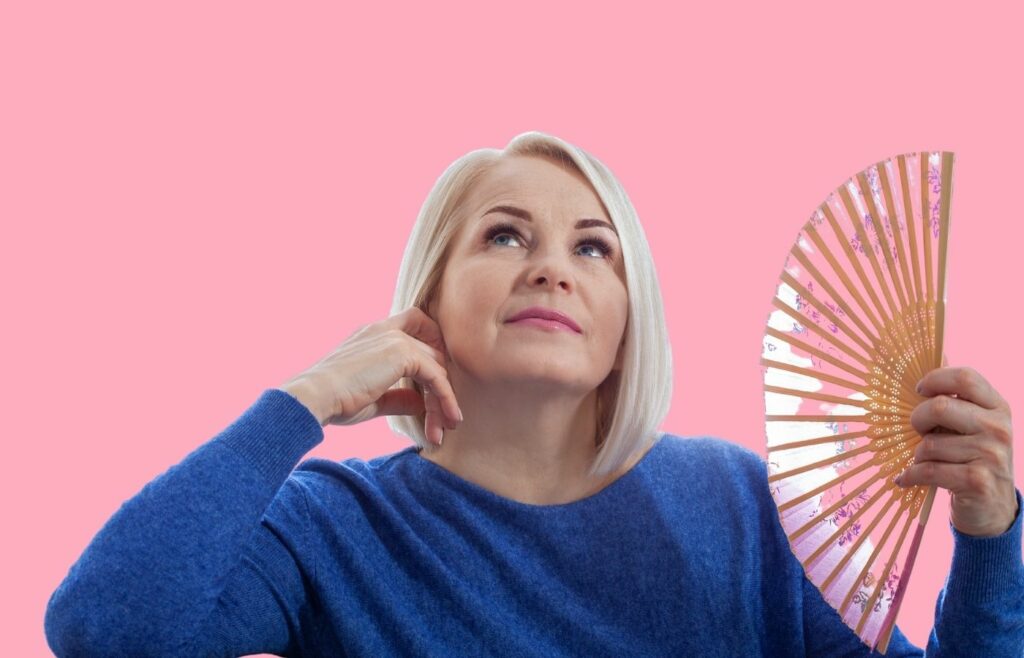
The average length of perimenopause is 4 years, but some women may only experience symptoms for a few months, or for as long as 10 years.
Some symptoms of perimenopause get better over time, while others, such as vaginal dryness, tend to get worse as women approach menopause.
The symptoms and duration of perimenopause appear to be influenced by cultural and lifestyle factors. For example, fewer Korean, Japanese, and Southeast Asian women report hot flashes.
Some signs that perimenopause is ending are increasingly irregular periods, worsening hot flashes and insomnia, painful intercourse, and changes in metabolism, possibly leading to weight gain.
READ ALSO: Top 10 Menopause Supplements for Women over 50
Why does Perimenopause cause bloating?

This is one of the most common questions women ask.
Bloating happens because:
1. Estrogen spikes slow digestion
High estrogen can cause water retention and slow your gut motility, leaving you feeling puffy or full.
2. Progesterone drops increase inflammation
Lower progesterone can make your gut more sensitive to certain foods.
3. Stress and cortisol rise
Cortisol reroutes blood flow away from digestion, causing gas, discomfort, and delayed emptying.
4. Gut bacteria change with age
Your microbiome naturally shifts in your 40s and 50s, increasing the likelihood of bloating.
5. Blood sugar fluctuations affect gut hormones
Spikes and crashes trigger digestive symptoms for many women. Perimenopausal bloating is frustrating, but normal and manageable.
Bloating is a common symptom of perimenopause and menopause. Bloating, caused by water retention and gas, is not the same as weight gain, although sometimes it can be hard to tell the difference.
It is characterized by a distended, swollen belly, especially after eating. However, bloating is temporary, while weight gain is usually more stable.
Here are some steps you can take to reduce perimenopause bloating:
- Stay hydrated
- Exercise regularly
- Reduce salt intake
- Avoid trigger foods like beans, broccoli, and fried foods
- Eat smaller meals
- Supplement with probiotics
- Avoid chewing gum or drinking carbonated beverages
- Cut down on alcohol consumption
- Reduce stress and anxiety
If you do all of these things and are still experiencing uncomfortable bloating, you can take over-the-counter gas medication or drink green tea, a natural diuretic.
Hormone therapy and birth control might also help with perimenopausal bloating.
Bloating will happen less frequently as your body adjusts to new hormone levels. If your bloating is persistent and painful, you should speak to your doctor to rule out other concerns.

Why does weight change so quickly during perimenopause?
Weight changes usually happen because of hormones + metabolism + lifestyle shifts.
The biggest contributors:
1. Lower estrogen changes where your body stores fat
More fat is stored around the belly for protection, this is biological and normal.
2. Metabolism slows by 150–200 calories per day after 40
This is to your fault. It’s because your body naturally burns less at rest.
3. Muscle mass declines
Muscle burns more calories than fat. Less muscle = slower metabolism.
4. Blood sugar becomes more sensitive
High-carb meals hit harder and lead to more fat storage.
5. Stress increases cortisol
Cortisol encourages belly fat and increases cravings.
6. Poor sleep affects hunger hormones
Low sleep raises ghrelin (hunger) and lowers leptin (fullness).
This combination makes your body feel “out of control”, but it can be supported with the right steps.
What foods help reduce bloating in perimenopause?

1. Protein at every meal
Supports blood sugar and reduces cravings.
2. High-fiber vegetables
Helps digestion and prevents constipation.
3. Ginger + peppermint
This combo reduces inflammation and soothe the gut.
4. Water-rich foods
Cucumber, berries, and watermelon can help flush excess water.
5. Fermented foods
Yogurt, kefir, sauerkraut and miso support gut bacteria.
6. Magnesium-rich foods
Spinach, pumpkin seeds and almonds can help digestion and reduce water retention.
What foods make perimenopausal bloating worse?
Many women notice bloating after:
- Sugary foods
- Alcohol
- Large late-night meals
- Processed carbohydrates
- Carbonated drinks
- Fried foods
- Artificial sweeteners
- Excess salt
This doesn’t mean you need to cut everything out, small adjustments make a big difference.
How can I manage perimenopause bloating naturally?

Here’s a simple step-by-step plan:
1. Start your morning with warm lemon water
Stimulates digestion gently.
2. Eat smaller, more balanced meals
Prevents overload on the digestive system.
3. Walk after meals
Helps gut motility and reduces gas.
4. Increase magnesium
Magnesium glycinate supports both digestion and sleep.
5. Hydrate well
Dehydration makes bloating worse.
6. Reduce alcohol
Alcohol worsens inflammation, bloating, and hot flashes.
7. Strength training
Supports metabolism and reduces inflammation.
Why do my periods become heavier or more irregular?
Because ovulation becomes inconsistent.
During perimenopause:
- Estrogen spikes → heavier bleeding
- Missed ovulation → longer cycles
- Low progesterone → spotting or mid-cycle bleeding
Most changes are normal. However, you should speak to a doctor if you experience:
- Extremely heavy bleeding
- Bleeding lasting more than 10 days
- Bleeding after sex
- Bleeding after 12 months without a period
Can perimenopause cause digestive issues like constipation or diarrhea?
Yes. Digestive changes are extremely common.
Why?
- Estrogen affects gut movement
- Progesterone affects fluid retention
- Stress changes digestion speed
- Food sensitivities increase with age
- Microbiome shifts in the 40s and 50s
Many women feel their digestion becomes “slower” or more sensitive.
What diet is best for perimenopause?
You don’t need anything extreme. Your body needs balance, protein, and consistency.
The best approach includes:
- Protein at every meal (20–30g)
- Fiber-rich vegetables
- Healthy fats (avocado, nuts, olive oil)
- Whole grains
- Omega-3s (salmon, sardines, chia)
- Hydration
- Magnesium and potassium-rich foods
Eat in a rhythm:
Try 3 balanced meals and avoid long gaps that spike blood sugar.
How can I maintain a healthy weight and diet during Perimenopause?
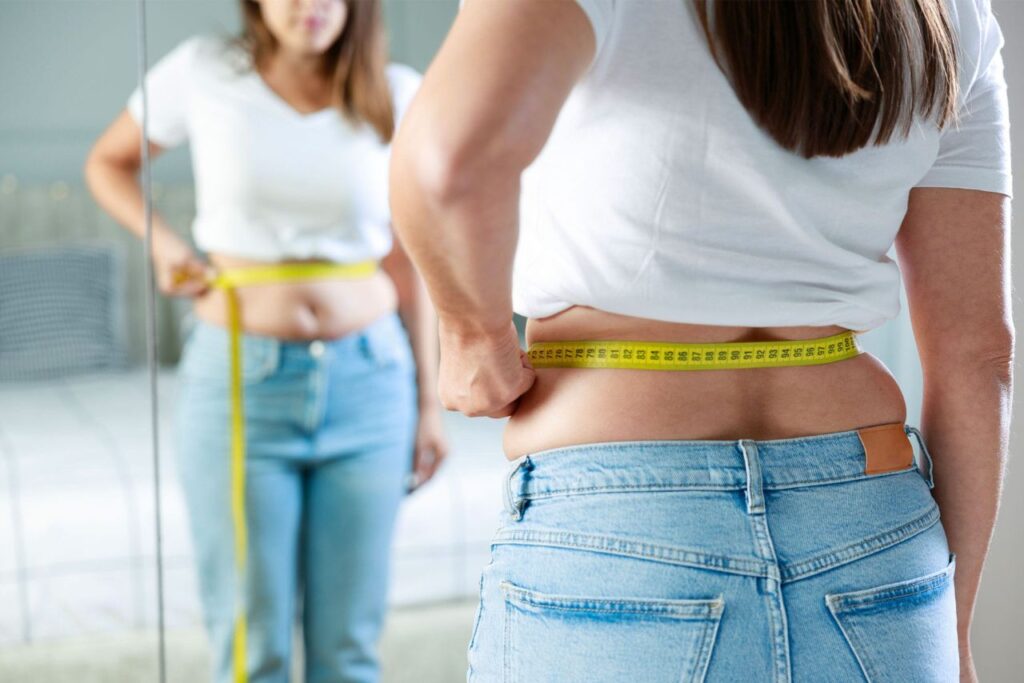
The average weight gain for perimenopausal and menopausal women is only 4.5 pounds, but it is one of the more common complaints of women who are going through this transition.
Compared to other areas of the body, women going through perimenopause and menopause are more likely to gain weight in the area around their abdomen.
Genetics and prior health history play a role in how much your body changes due to perimenopause, but there are things you can do to maintain a healthy weight during perimenopause, such as changing your diet and exercising regularly.
It’s best to start with small, sustainable changes, such as:
1. Eat a fruit or vegetable at every meal
Fruits and vegetables contain fiber, which helps you feel full and stay regular. Fruits and vegetables like celery, watermelon, and cucumber have high water content, which can help fight water retention.
2. Limit alcohol and sweets
Alcoholic drinks and sweets are high in calories but low in nutrition.
In addition, alcohol can exacerbate many perimenopausal symptoms, like insomnia, depression, and bloating.
3. Drink more water
It may seem counterintuitive to drink more water when you are retaining water, but experts say this is the best way to fight water retention.
4. Switch to whole grains
Whole grains, like fibrous fruits and vegetables, make you feel fuller for longer.
They also help prevent age-related conditions like heart disease and cancer.
5. Watch out for emotional eating
Many of us head to the fridge or the pantry when we are stressed or upset.
But emotional eating is associated with weight gain and failed attempts at weight loss.
Before you reach for a snack to self-soothe, ask yourself, “What am I feeling?” or “What do I need right now?”
6. Get support
According to research, making dietary changes is more likely to be successful if you have a strong support system.
So, call up that friend and meet up at the next farmer’s market, or take a healthy cooking class together!
7. Exercise Regularly
We all know exercise is good for us, but it is not always easy to motivate ourselves or fit exercise into our busy schedules. Luckily, you don’t need to hit the gym for an hour a day to reap the benefits of exercise.
READ ALSO: Makeup For Menopausal Skin
What exercises help with perimenopause weight changes?
Strength training (2–3x per week)
Strength training builds muscle, boosts metabolism, and then reduces fat storage.
Walking (daily)
Walking reduces cortisol and improves insulin sensitivity.
Pilates or yoga
Yoga supports core stability, posture, and stress reduction.
Interval training (optional)
Doing short bursts of intensity improve metabolism without burning out the body.
Exercise doesn’t need to be extreme, it needs to be consistent.
Can Perimenopause symptoms be reduced by treatments? What are they?

The most common treatments for perimenopausal symptoms are birth control, hormone replacement therapy (HRT), and antidepressant medication.
It is important to speak to your doctor before starting any of these treatments.
In addition, there are several lifestyle changes that can help with perimenopausal symptoms, such as exercise and diet.
1. Supplements
Supplements that offer long-lasting hormonal support can also help you manage the symptoms of perimenopause.
Although there is conflicting research and less regulation of nutritional supplements than there is for prescription drugs, some women claim relief from using them.
Fortunately, there are a number of supplements that offer support for perimenopausal symptoms, such as fatigue, hot flashes, night sweats, dry skin, and many others.
We shared our recommendation for the best supplements for perimenopause and menopause here. We hope they will be beneficial in helping you on your menopausal journey.
2. Birth control
This is often prescribed in early perimenopause as a treatment for vasomotor symptoms like hot flashes and night sweats, and can be administered in the form of a pill, patch, or ring.
Some women find that birth control also helps to even out their moods and reduce hormonal acne.
But birth control is not right for all women, so be sure to talk to your doctor before taking it.
3. Hormone replacement therapy (HRT)
HRT is a medication that contains reproductive hormones like estrogen and progesterone.
There are two types of HRT, and they are: systemic hormone therapy and low-dose vaginal products. Low-dose vaginal products are only used to treat symptoms in the vaginal or urinary areas. Systemic hormone therapy, on the other hand, uses a higher dose of estrogen that is spread all over the body.
Doctors often give progesterone along with estrogen to keep the uterine lining from getting thicker.
There are some risks associated with HRT, but they can be minimized with its short-term use and type of treatment.
4. Antidepressant Medication
Antidepressant medications have been shown to address both the vasomotor symptoms, (e.g., hot flashes), and the emotional symptoms (depression, anxiety, and mood swings) of perimenopause.
There are several different types of antidepressants. Your doctor can discuss which medication might be best for you.
Sometimes, women need to try several different medications before finding the right one, or supplement antidepressant treatment with estrogen replacement for optimal results.
Closing Thoughts
Perimenopause is one of the most misunderstood phases of a woman’s life. Your body is shifting, your hormones are recalibrating, and your symptoms may feel unpredictable, but you are not losing control. This is a natural transition that every woman moves through in her own way.
With the right support, simple changes, gentle awareness, and a little patience, you can feel better, sleep better, manage your weight more easily, and reconnect with your body again.
This chapter isn’t a decline, it’s a transformation. And you have everything inside you to move through it with strength and confidence.
Frequently Asked Questions on Perimenopause
Typically 4–8 years.
Yes. It’s very common and linked to hormone fluctuations.
A mix of low estrogen, low progesterone, slower metabolism, and blood sugar changes.
Yes, hormones can affect the brain’s stress centers.
Protein, fiber, healthy fats, whole foods, balanced meals, and stable blood sugar.
Yes. Hormones fluctuate unpredictably during this stage.
Sources +
Hopkinsmedicine.org | Webmd.com | mayoclinic.org | ncbi.nlm.nih.gov | endocrineweb.com | healthline.com | medicalnewstoday.com
This article was first published in April 3, 2023 and last updated on December 1, 2025.

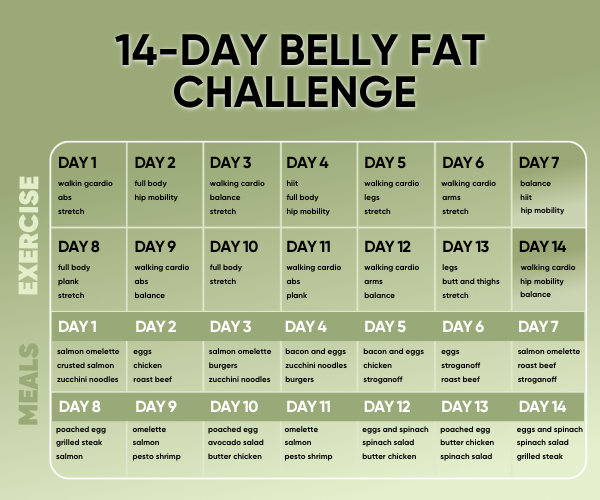
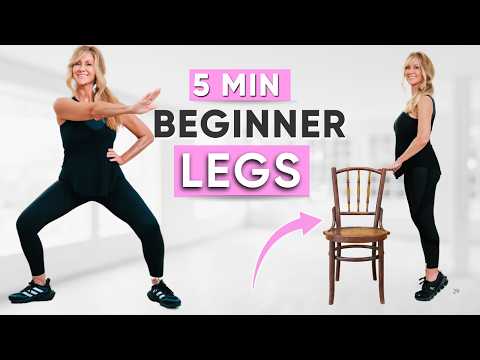



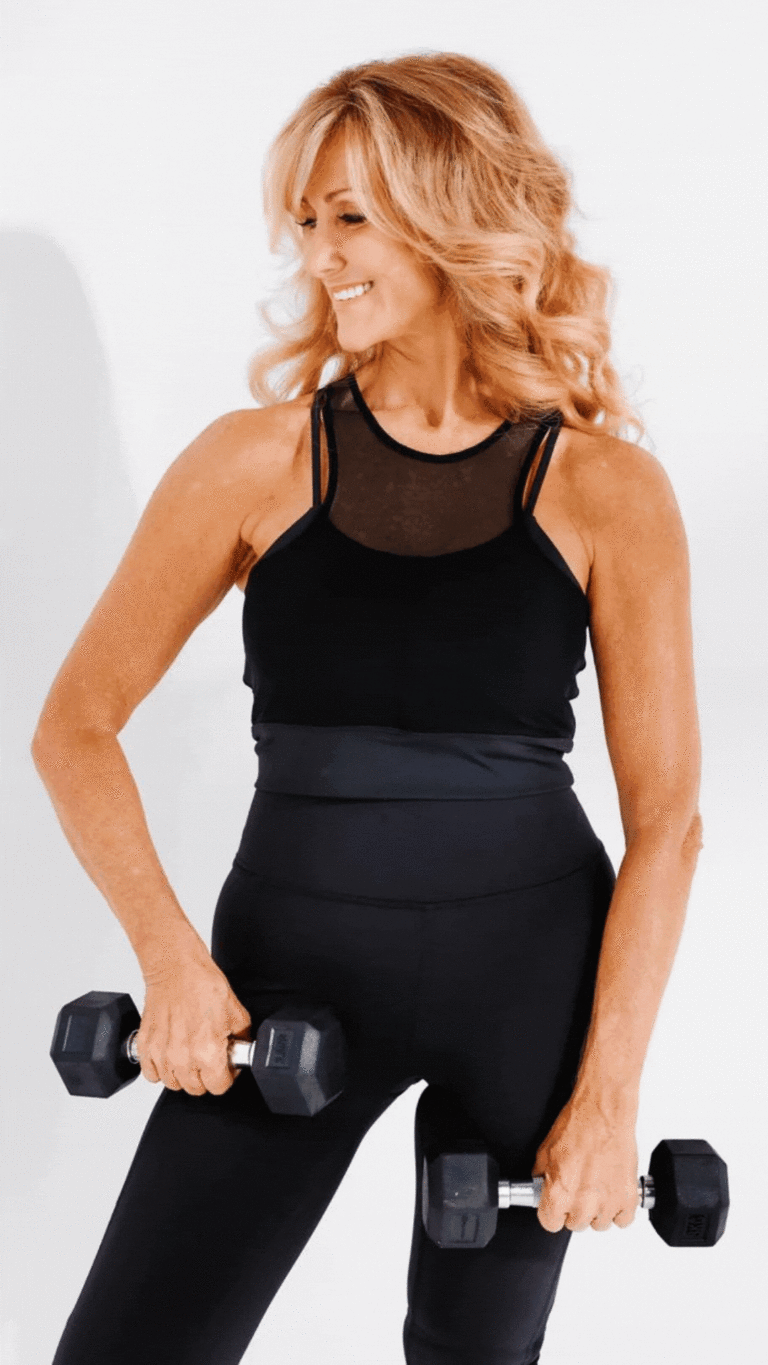




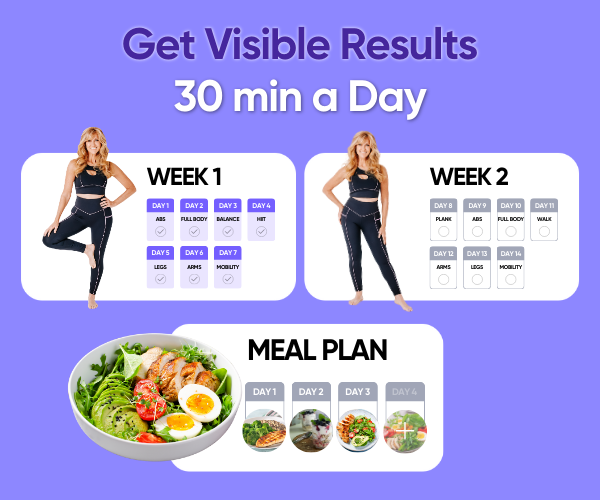

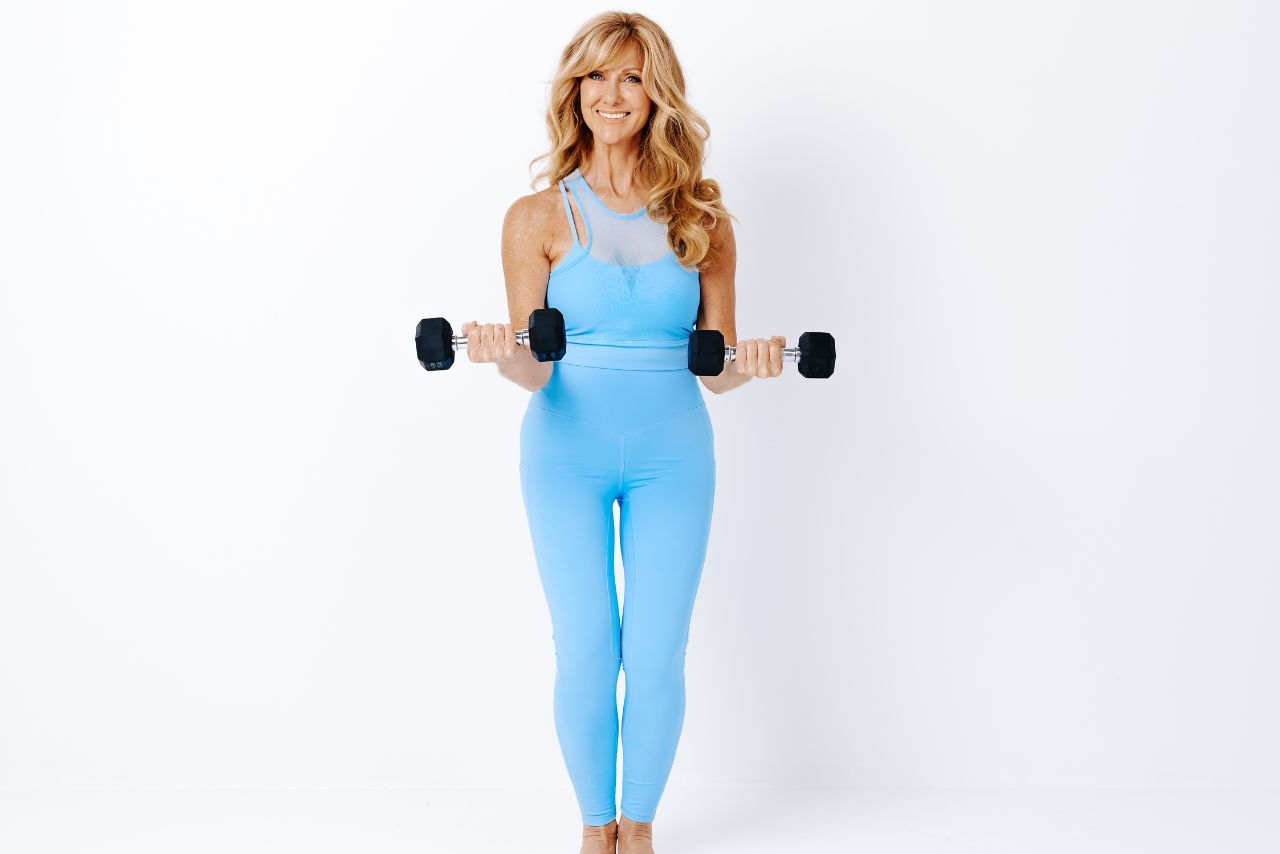
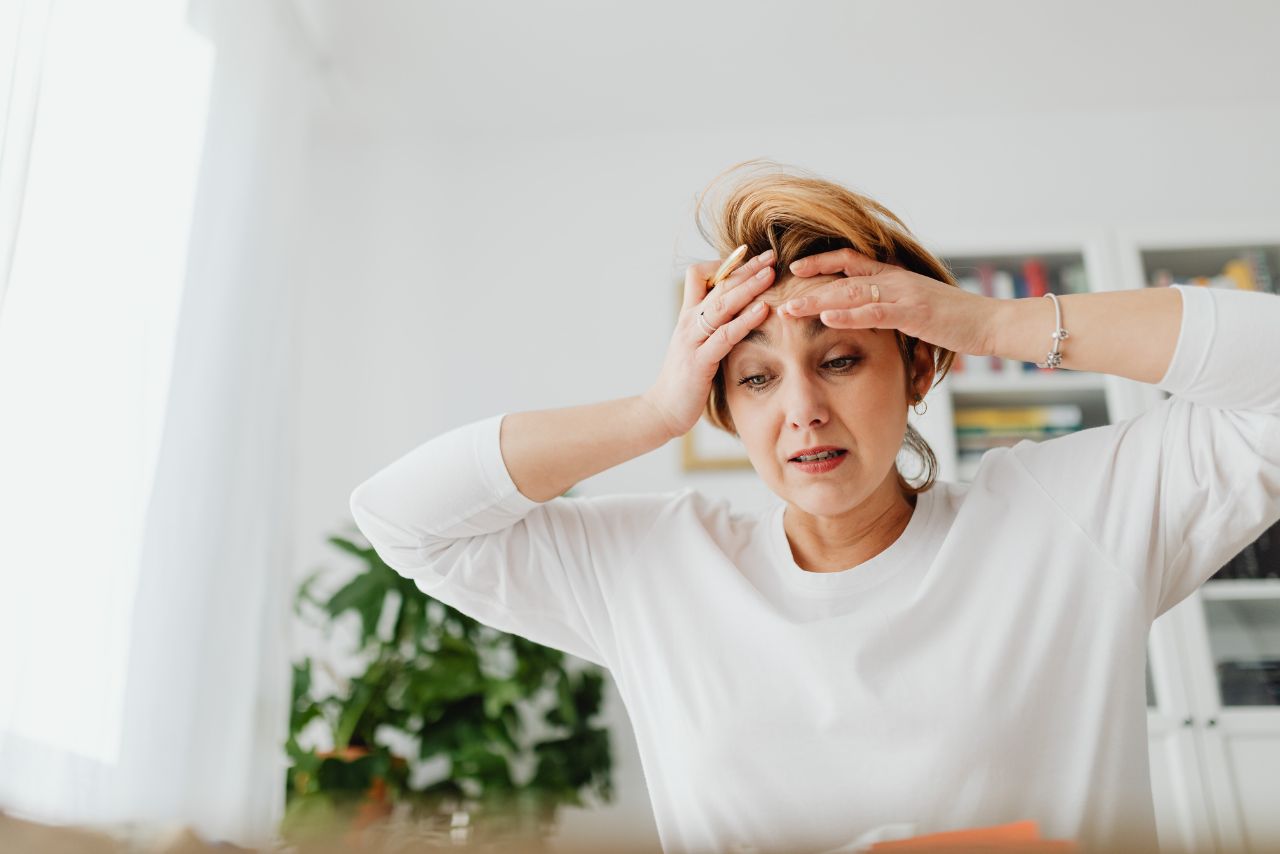
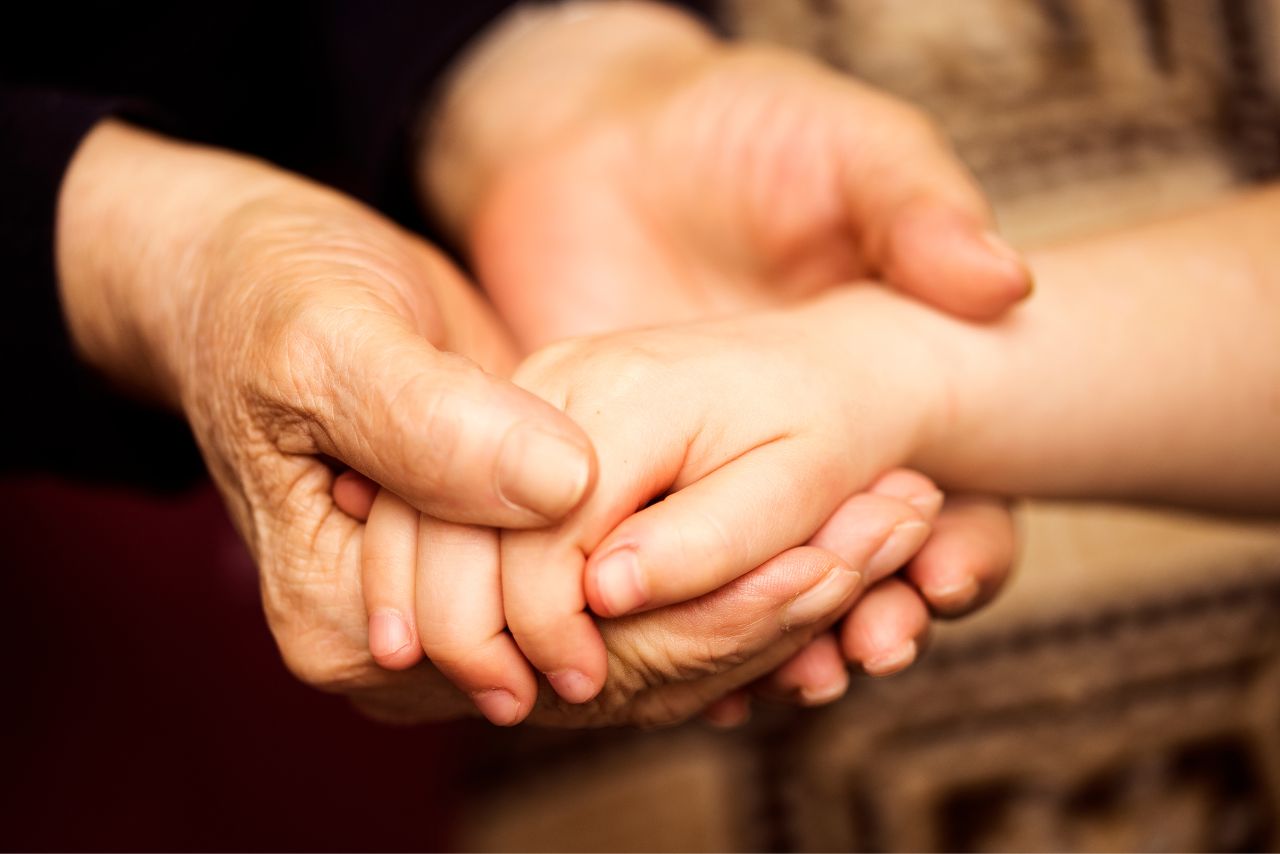

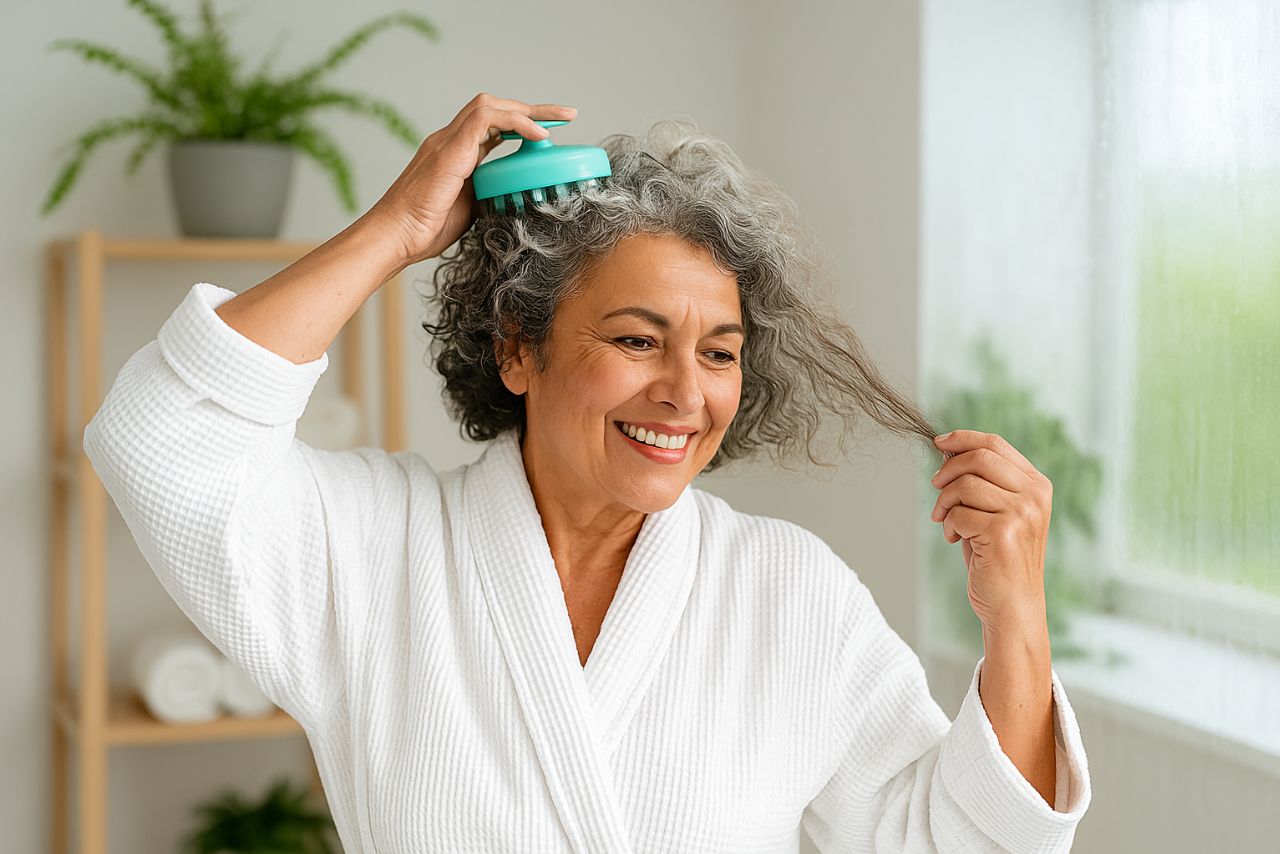



2 Responses
Menopause is when women can loose loads of bone density. Be alert to this possibility BEFORE it occurs. Maintaining is superior to rebuilding. Rebuilding is an uphill battle.
Thank you so much for taking the time to comment Melinda. Stay strong and fabulous ❤️